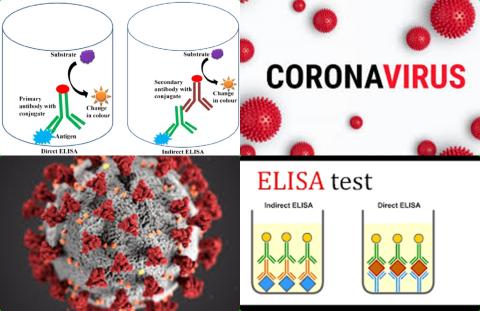
Objectives:
The emergence of coronavirus disease 2019 (COVID-19) caused by SARS-CoV-2 made imperative the need for diagnostic tests that can identify the infection. Although Nucleic Acid Test (NAT) is considered to be the gold standard, serological tests based on antibodies could be very helpful. However, individual studies are usually inconclusive. Therefore, this review article has been conducted.
What is the specificity and sensitivity of all available antibody-tests for SARS-CoV-2 (COVID-19) infection?
Study design:
This review article included 38 studies containing data from 7,848 individuals (3,522 COVID-19 cases and 4,326 healthy or non COVID-19 individuals).
There was no publication bias.
Results and conclusions:
The investigators found ELISA tests using the S antigen were more sensitive than N antigen-based tests.
The investigators found IgG tests performed better compared to IgM ones and showed better sensitivity when the samples were taken longer after the onset of symptoms.
Moreover, a combined IgG/IgM test seemed to be a better choice in terms of sensitivity [0.935, 95% CI = 0.900 to 0.971] than measuring either antibody alone.
The investigators found all methods yielded high specificity with some of them (ELISA and LFIA) reaching levels around 99%.
The investigators found ELISA- and CLIA-based methods performed better in terms of sensitivity [90%-94%] followed by LFIA and FIA with sensitivities ranging from 80% to 89%.
The investigators concluded based on the results of this meta-analysis, ELISA tests that achieved specificity higher than 99% and sensitivity ~93% could be the safer choice at this stage of the pandemic. CLIA tests show comparable sensitivity (~90%) but slightly decreased specificity (95%-98%). LFIA tests on the other hand are particularly attractive for large seroprevalence studies and can be used as POC tests. However, it shows lower sensitivity, and this should be taken into account when designing and performing seroprevalence studies, for instance, by adjusting properly the obtained positive and negative findings. At the individual level, perhaps mixed strategies could be adopted (for instance re-testing a negative finding using a different test).
Original title:
Antibody Tests in Detecting SARS-CoV-2 Infection: A Meta-Analysis by Kontou PI, Braliou GG, […], G. Bagos PG.
Link:
https://www.mdpi.com/2075-4418/10/5/319/htm
Additional information of El Mondo:
Find more information/studies on coronavirus right here.